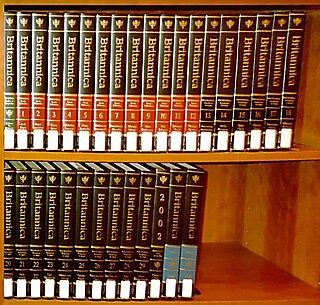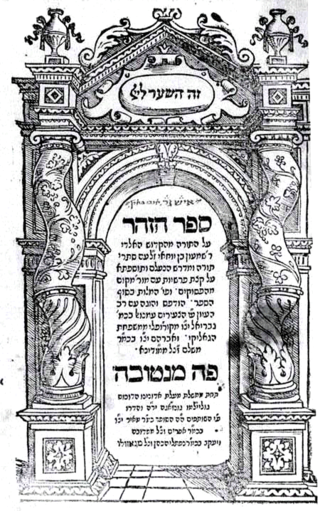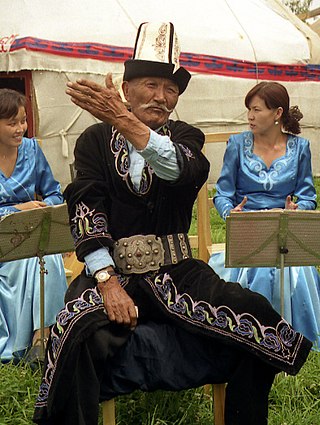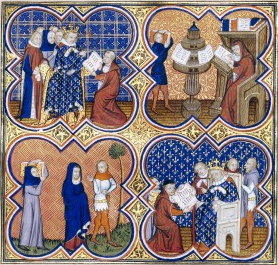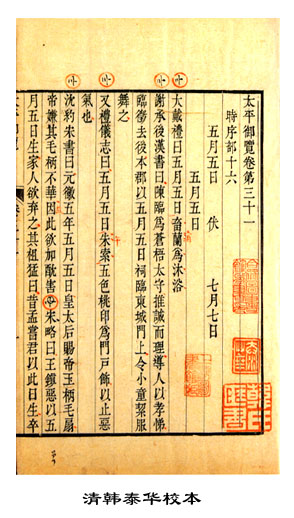This article needs additional citations for verification .(January 2022) |
In classical scholarship, the editio princeps (plural: editiones principes) of a work is the first printed edition of the work, that previously had existed only in manuscripts, which could be circulated only after being copied by hand. The following is a list of literature works in languages other than Latin or Greek.
| Date | Author, Work | Printer | Location | Comment | |
|---|---|---|---|---|---|
| 704-751 [1] | Uṣṇīṣa Vijaya Dhāraṇī Sūtra (Chinese translation) | Bulguksa | The Great Dharani Sutra is believed to be the oldest surviving printed text in the world. | ||
| 868 [1] | Diamond Sutra (Chinese translation) | Wang Jie | This is the oldest printed text with a specific date. | ||
| 983 [2] | Chinese Buddhist canon (Chinese) | This edition contained either 1,076, 1,081 or 1,087 texts according to different sources. [3] A list of these texts can be found here: . Only 14 fascicles from this edition currently survive. | |||
| 1003 [4] | Records of the Three Kingdoms (Chinese) | ||||
| 1035 [5] | Records of the Grand Historian (Chinese) | ||||
| 1050 [6] | Huainanzi (Chinese) | The only original copy of this edition was lost in 1945, although facsimile copies exist. The earliest extant edition is the Daozang redaction of 1445. | |||
| 1180 [7] | Classic of Mountains and Seas (Chinese) | You Mao | |||
| 1341 [8] | Ballad of Mulan (Chinese) | Printed as part of the Music Bureau Collection (Yuefu shiji). An earlier Southern Song edition may exist but doesn't have a date. | |||
| 1472 | Dante Alighieri, Divine Comedy (Italian) | Johann Numeister and Evangelista Angelini da Trevi [9] | Foligno | ||
| 1476 | Geoffrey Chaucer, The Canterbury Tales (Middle English) | William Caxton | Westminster | ||
| 1477 | The Travels of Marco Polo (German translation) | Friedrich Creussner | Nuremberg | ||
| 1480 | Brut Chronicle (English) | William Caxton | Westminster | ||
| 1480 | Robert de Boron, Prose Merlin (Italian translation) | Michele Tramezzino | Venice | ||
| 1485 | Thomas Malory, Le Morte d'Arthur (Middle English) | William Caxton | Westminster | ||
| 1488 | Prose Lancelot (French) | Jean Le Bourgeois, Jean du Pré | Rouen, Paris | ||
| 1489 | Prose Tristan (French) | Jean Le Bourgeois, Anthoine Vérard | Rouen | ||
| 1495 | Joseph and Aseneth (French) | John de Vigny | |||
| 1498 | Vulgate Merlin (French) | Antoine Verard | Paris | ||
| c. 1510 | A Gest of Robyn Hode (Middle English) | Jan van Doesbroch | Antwerp | ||
| 1512 | Genesis Rabbah (Hebrew) | Constantinople | |||
| 1512 | Il-yeon, Samguk yusa (Korean) | Earliest extant edition. | |||
| 1512 | Kim Bu-sik, Samguk sagi (Korean) | Earliest extant edition. | |||
| 1514 | Alphabet of Sirach (Hebrew) | Salonica | |||
| 1520-3 | Talmud (Hebrew, Aramaic) | Daniel Bomberg | Venice | ||
| 1522 | Luo Guanzhong, Romance of the Three Kingdoms (Chinese) | ||||
| 1524–25 | Bible (Hebrew) | Daniel Bomberg | Venice | Edition included masoretic notes, Aramaic targums and Rashi's commentary, see Mikraot Gedolot. | |
| 1537-38 | Quran (Arabic) | Paganino Paganini [10] [11] | Venice | The first-ever printed Quran in Arabic. | |
| 1558-1560 | Zohar (Aramaic) | Mantua | |||
| 1562 [12] [13] | Sefer Yetzirah (Hebrew) | Mantua [12] | Includes four commentaries. | ||
| 1599 | Nihon Shoki (Japanese) | Contains only the first two books. The whole Nihon Shoki was published in 1610. | |||
| 1636 | Krákumál (Old Norse and Latin translation) | Ole Worm | Amsterdam | ||
| 1643 | Anglo-Saxon Chronicle (Old English and Latin translation) | Abraham Whelock | |||
| 1644 | Kojiki (Japanese) | Kyoto | |||
| 1663 | Robin Hood's Progress to Nottingham (English) | W. Gilbertson | London | ||
| 1663 | Robin Hood Newly Revived (English) | W. Gilbertson | London | ||
| 1663 | The Jolly Pinder of Wakefield (English) | W. Gilbertson | London | ||
| 1663 | Robin Hood and the Bishop (English) | W. Gilbertson | London | ||
| 1663 | Robin Hood and the Butcher (English) | W. Gilbertson | London | ||
| 1663 | Robin Hood Rescuing Will Stutly (English) | W. Gilbertson | London | ||
| 1663 | Robin Hood and the Beggar (English) | W. Gilbertson | London | ||
| 1663 | Robin Hood and Queen Katherine (English) | W. Gilbertson | London | ||
| 1663 | Robin Hood and the Tanner (English) | W. Gilbertson | London | ||
| 1663 | Robin Hood and the Curtal Friar (English) | W. Gilbertson | London | ||
| 1663 | The Noble Fisherman (English) | W. Gilbertson | London | ||
| 1663 | Robin Hood and the Shepherd (English) | W. Gilbertson | London | ||
| 1663 | Robin Hood's Golden Prize (English) | W. Gilbertson | London | ||
| 1663 | Robin Hood's Chase (English) | W. Gilbertson | London | ||
| 1663 | Little John A Begging (English) | W. Gilbertson | London | ||
| 1663 | Robin Hood's Delight (English) | W. Gilbertson | London | ||
| 1665 | Snorri Sturluson, Prose Edda (Icelandic, Danish and Latin translations) | P. J. Resenius | Copenhagen | ||
| 1665 | Völuspá (Icelandic, Danish and Latin translations) | P. J. Resenius | Copenhagen | ||
| 1665 | Hávamál (Icelandic, Danish and Latin translations) | P. J. Resenius | Copenhagen | ||
| 1697 | Arabic Infancy Gospel (Arabic and Latin translation) | Heinrich Sike | Utrecht | ||
| 1697 | Heimskringla (Icelandic, Swedish and Latin translations) | Johan Peringskiöld | Stockholm | ||
| 1704-1717 | One Thousand and One Nights (French translation) | Antoine Galland | Paris | ||
| 1730 | Questions of Ezra (Armenian) | Constantinople | |||
| 1732 | Baha ad-Din ibn Shaddad, The Life of Saladin (Arabic and Latin translation) | Albert Schultens | Leiden | ||
| 1737 | Völsunga saga (Icelandic, Swedish and Latin translation) | Eric Julius Biörner | Stockholm | ||
| 1737 | Tale of Ragnar Lodbrok (Icelandic, Swedish and Latin translation) | Eric Julius Biörner | Stockholm | ||
| 1761 | Kālidāsa Shakuntala (Sanskrit) | Calcutta | |||
| 1765 | The Boy and the Mantle (Middle English) | Thomas Percy | London | ||
| 1773 | Tale of Ragnar's Sons (Old Norse and Latin translation) | Jacob Langebek | |||
| 1780 | Orkneyinga saga (Old Norse and Latin translation) | Jonas Jonaeus | Copenhagen | ||
| 1782 | Egil's Saga | Hrappsey | |||
| 1785 | Bhagavad Gita (English translation) | Charles Wilkins | London | ||
| 1787 | Vafþrúðnismál (Icelandic and Latin translation) | Arnamagnæan Institute | Copenhagen | ||
| 1787 | Grímnismál (Icelandic and Latin translation) | Arnamagnæan Institute | Copenhagen | ||
| 1787 | Skírnismál (Icelandic and Latin translation) | Arnamagnæan Institute | Copenhagen | ||
| 1787 | Hárbarðsljóð (Icelandic and Latin translation) | Arnamagnæan Institute | Copenhagen | ||
| 1787 | Hymiskviða (Icelandic and Latin translation) | Arnamagnæan Institute | Copenhagen | ||
| 1787 | Lokasenna (Icelandic and Latin translation) | Arnamagnæan Institute | Copenhagen | ||
| 1787 | Þrymskviða (Icelandic and Latin translation) | Arnamagnæan Institute | Copenhagen | ||
| 1787 | Hrafnagaldr Óðins (Icelandic and Latin translation) | Arnamagnæan Institute | Copenhagen | ||
| 1787 | Baldrs draumar (Icelandic and Latin translation) | Arnamagnæan Institute | Copenhagen | ||
| 1787 | Alvíssmál (Icelandic and Latin translation) | Arnamagnæan Institute | Copenhagen | ||
| 1787 | Fjölsvinnsmál (Icelandic and Latin translation) | Arnamagnæan Institute | Copenhagen | ||
| 1787 | Hyndluljóð (Icelandic and Latin translation) | Arnamagnæan Institute | Copenhagen | ||
| 1787 | Sólarljóð (Icelandic and Latin translation) | Arnamagnæan Institute | Copenhagen | ||
| 1788 | Bhagavata Purana (French translation) | Mariedas Poullee | Paris | ||
| 1795 | Robin Hood and the Potter (Middle English) | Joseph Ritson | London | ||
| 1802 | Ywain and Gawain (Middle English) | Joseph Ritson | London | ||
| 1802 | Sir Launfal (Middle English) | Joseph Ritson | London | ||
| 1802 | Libeaus Desconus (Middle English) | Joseph Ritson | London | ||
| 1804 | Sir Tristrem (Middle English) | Sir Walter Scott | Edinburgh | ||
| 1806 | Bhagavad Gita (Sanskrit) | Sir William Jones | |||
| 1806-1810 | Ramayana (Sanskrit and English translation) | William Carey and Joshua Marshman | Serampore | This 3-volume edition contains only the first two books of the Ramayana. The first complete edition of the Ramayana was published by Gaspare Gorresio in 1843–1850 in Paris. | |
| 1806 | Robin Hood and the Monk (English) | Robert Jamieson | Edinburgh | ||
| 1810 | Sir Cleges (Middle English) | Henry Weber | Edinburgh | ||
| 1815 | Beowulf (Old English and Latin translation) | Grímur Jónsson Thorkelin | Copenhagen | ||
| 1816 | Kena Upanishad | Rammohun Roy | Calcutta | ||
| 1816 | Isha Upanishad | Rammohun Roy | Calcutta | ||
| 1817 | Katha Upanishad | Rammohun Roy | Calcutta | ||
| 1817 | Mandukya Upanishad | Rammohun Roy | Calcutta | ||
| 1818 | Mundaka Upanishad | Rammohun Roy | Calcutta | ||
| 1819 | Stanzaic Morte Arthur (Middle English) | Thomas Ponton | London | ||
| 1819 | Ascension of Isaiah (Ethiopic) | Richard Laurence | Oxford | ||
| 1821 | Book of Enoch (English translation) | Richard Laurence | |||
| 1823 | Devi Mahatmya (English translation) | Cavali Venkata Ramasswani | Calcutta | ||
| 1830 | Bhagavata Purana (Sanskrit) | B.C. Bandopadhyaya | Calcutta | ||
| 1834-1839 | Mahabharata (Sanskrit) | Calcutta | |||
| 1837 | Mahāvaṃsa (Pali and English translation) | George Turnour | Colombo | ||
| 1838 | Book of Enoch (Ethiopic) | Richard Laurence | |||
| 1838 | Kālidāsa Kumārasambhava (Sanskrit and Latin translation) | Adolphus Fridericus Stenzler | London | ||
| 1838 | Owain, or the Lady of the Fountain (Middle Welsh and English translation) | Lady Charlotte Guest | |||
| 1838 | Chrétien de Troyes, Yvain, the Knight of the Lion (Old French) | Lady Charlotte Guest | |||
| 1839 | Peredur son of Efrawg (Middle Welsh and English translation) | Lady Charlotte Guest | |||
| 1839 | Sir Gawain and the Green Knight (Middle English) | Frederic Madden | London | ||
| 1839 | The Awntyrs off Arthure (Middle English) | Frederic Madden | London | ||
| 1839 | Sir Gawain and the Carle of Carlisle (Middle English) | Frederic Madden | London | ||
| 1839 | The Greene Knight (Middle English) | Frederic Madden | London | ||
| 1839 | King Arthur and King Cornwall (Middle English) | Frederic Madden | London | ||
| 1839 | The Wedding of Sir Gawain and Dame Ragnelle (Middle English) | Frederic Madden | London | ||
| 1840 | Kālidāsa Mālavikāgnimitram (Sanskrit and Latin translation) | Otto Fridericus Tullberg | Bonn | ||
| 1840 | Geraint and Enid (Middle Welsh and English translation) | Lady Charlotte Guest | |||
| 1840 | Vishnu Purana (English translation) | H. H. Wilson | London | ||
| 1842 | Culhwch and Olwen (Middle Welsh and English translation) | Lady Charlotte Guest | |||
| 1842 | The Avowing of King Arthur (Middle English) | John Robson | London | ||
| 1842 | Egyptian Book of the Dead (Ancient Egyptian) | Karl Richard Lepsius | Leipzig | ||
| 1843 | The Dream of Rhonabwy (Middle Welsh and English translation) | Lady Charlotte Guest | |||
| 1843 | Epistle to the Laodiceans | R. Anger | Leipzig | ||
| 1843 | Samaveda (Sanskrit) | J. Stevenson | London | ||
| 1843 | Hotsuma Tsutae (Japanese) | Michimasa Ogasawara | Kyoto | ||
| 1844 | Sir Perceval of Galles (Middle English) | J. O. Halliwell | London | ||
| 1847 | Alliterative Morte Arthur (Middle English) | J. O. Halliwell | Brixton | ||
| 1847 | Fagrskinna | Peter Andreas Munch | Oslo | ||
| 1848 | Solomon and Saturn (Old English) | J. N. Kemble | London | ||
| 1849-1874 | Rigveda (Sanskrit) | Max Müller | London | ||
| 1850 | Wycliffe Bible (Middle English) | Josiah Forshall and Frederic Madden | |||
| 1850 | Chrétien de Troyes, Lancelot, the Knight of the Cart (Old French) | W.J.A. Jonckbloet | The Hague | ||
| 1851 | Markandeya Purana (Sanskrit and English translation) | Krishna Mohan Banerjea | Calcutta | ||
| 1852-1859 | Yajurveda (Sanskrit) | Albrecht Weber | Berlin | ||
| 1853 | Conflict of Adam and Eve with Satan (German) | August Dillmann | |||
| 1853-1877 | Lalitavistara Sūtra (Sanskrit) | Rajendralal Mitra | Calcutta | ||
| 1855 | Apocalypse of Elijah (Hebrew) | Adolf Jellinek | |||
| 1855 | Dhammapada (Pali and Latin translation) | Vincent Fausboll | Copenhagen | ||
| 1856 | Atharvaveda (Sanskrit) | Rudolf von Roth, William Dwight Whitney | Berlin | ||
| 1856 | Chrétien de Troyes, Erec and Enide (Old French) | Immanuel Bekker | |||
| 1856 | Popol Vuh (Spanish) | Carl Scherzer | Vienna | ||
| 1857 | Brahmanda Purana (Sanskrit) | Venkateshvara Steam Press | Bombay | ||
| 1857 | Linga Purana (Sanskrit) | Bombay | |||
| 1859 | Book of Jubilees (Ethiopic) | August Dillmann | |||
| 1863 | Apocalypse of Abraham (Old Church Slavonic) | N. S. Tikhonravov | St. Petersburg | ||
| 1866 | 2 Baruch (Syriac) | Antonio Maria Ceriani | Milan | ||
| 1866-68 | Chrétien de Troyes, Perceval, the Story of the Grail (Old French) | Charles Potvin | |||
| 1870 | Tain Bó Fraích (Irish and English translation) | J. O'Beirne Crowe | |||
| 1873-1879 | Agni Purana (Sanskrit) | Rajendralal Mitra | Calcutta | ||
| 1874 | Matsya Purana (Sanskrit) | Jagaddhitecchu Press | Poona | ||
| 1875 | Kurma Purana (Sanskrit in Telugu characters) | Vartamanatarangini Press | Madras | ||
| 1876 | Ganesha Purana (Sanskrit) | Jagaddhitecchu Press | Poona | ||
| 1876-1878 | Aided Con Culainn (English translation) | Whitley Stokes | Paris | ||
| 1877-1897 | Jataka (Pali and English translation) | Vincent Fausboll | London | ||
| 1878 | Tochmarc Étaíne (Irish) | Edward Müller | Paris | ||
| 1879-1883 | Vinaya Pitaka (Pali) | Hermann Oldenberg | London | ||
| 1880 | Second Book of Enoch (Old Church Slavonic) | A. Popov | Moscow | ||
| 1880 | Compert Con Culainn (Irish) | Ernst Windisch | Leipzig | ||
| 1880 | The Tale of Mac Da Thó's Pig (Irish) | Ernst Windisch | Leipzig | ||
| 1880 | Fled Bricrenn (Irish) | Ernst Windisch | Leipzig | ||
| 1880 | Serglige Con Culainn (Irish) | Ernst Windisch | Leipzig | ||
| 1882-1897 | Mahāvastu (Sanskrit) | Emile Senart | Paris | ||
| 1883 | Cave of Treasures (German translation) | Carl Bezold | Leipzig | ||
| 1883-1885 | Compert Conchobuir (Irish and English translation) | Kuno Meyer | Paris | ||
| 1883-1885 | Aided Conrói maic Dáiri (Irish) | Kuno Meyer | Paris | ||
| 1884 | Epic of Gilgamesh (English translation) | Leonidas Le Cenci Hamilton | This translation incorrectly calls the main character Izdubar instead of Gilgamesh and takes many liberties with the story. Partial translations were previously published by George Smith in 1876 and H.F. Talbot in 1877. The first translation to call him Gilgamesh was the William Muss-Arnolt translation of 1901. | ||
| 1884-1904 | Samyutta Nikaya (Pali) | Leon Feer | London | 6 volumes | |
| 1885 | Sutta Nipata (Pali) | Vincent Fausboll | London | ||
| 1885-1900 | Anguttara Nikaya (Pali) | Richard Morris | London | ||
| 1886 | Divyavadana (Sanskrit) | Edward Byles Cowell, R.A. Neil | Cambridge | Two Chinese translations of the Ashokavadana had previously been published as part of the Chinese Buddhist canon in 983. Excerpts had also been published in French translation in 1844 by Eugène Burnouf. | |
| 1887 | Aided Meidbe (English translation) | Kuno Meyer | |||
| 1887 | Táin Bó Flidhais (Irish) | Ernst Windisch | Leipzig | ||
| 1887 | Táin Bó Dartada (Irish) | Ernst Windisch | Leipzig | ||
| 1887 | Táin Bó Regamain (Irish) | Ernst Windisch | Leipzig | ||
| 1887 | Táin Bó Regamna (Irish) | Ernst Windisch | Leipzig | ||
| 1888 | Cave of Treasures (Syriac) | Carl Bezold | Leipzig | ||
| 1888 | Aided Derbforgaill (Irish and German translation) | Heinrich Zimmer | Berlin | ||
| 1888-1925 | Majjhima Nikaya (Pali) | V. Trenckner, Robert Chalmers, Caroline Rhys Davids | London | 4 volumes | |
| 1889 | Mesca Ulad (Irish) | William M. Hennessy | Dublin | ||
| 1890 | Tochmarc Emire (Irish) | Kuno Meyer | Paris | ||
| 1890-1911 | Digha Nikaya (Pali) | T.W. Rhys Davids and J.E. Carpenter | London | ||
| 1891 | Tochmarc Ferbe (Irish and German translation) | Ernst Windisch | Leipzig | ||
| 1892 | Aided Chonchobuir (French translation) | Marie-Henri d'Arbois de Jubainville | Paris | ||
| 1892 | Imthechta Tuaithe Luachra 7 Aided Fergusa (Irish and English translation) | Standish Hayes O'Grady | London | ||
| 1892 | Cath Ruis na Ríg (Irish and English translation) | Edmund Hogan | Dublin | ||
| 1893 | Slavonic Life of Adam and Eve (Old Church Slavonic) | V. Jagic | Vienna | ||
| 1893 | Aided Guill meic Garbada ocus Aided Gairb Glinne Ríge (Irish and English translation) | Whitley Stokes | Paris | ||
| 1893 | Buddhacarita (Sanskrit) | E. B. Cowell | Oxford | ||
| 1894 | Pyramid Texts (Ancient Egyptian) | Gaston Maspero | Paris | ||
| 1895 | Brahma Purana (Sanskrit) | Hari Narayana Apte | Poona | ||
| 1895 | The Voyage of Bran (Irish and English translation) | Kuno Meyer | London | ||
| 1897 | Pararaton (Old Javanese and Dutch translation) | Jan Laurens Andries Brandes | Batavia | ||
| 1899 | Apocalypse of Zephaniah | Georg Steindorff | Leipzig | ||
| 1900 | Ladder of Jacob (German translation) | N. Bonwetsch | |||
| 1900 | Testament of Isaac (Coptic) | I. Guidi | Rome | ||
| 1900 | Testament of Jacob (Coptic) | I. Guidi | Rome | ||
| 1901 | Enuma Elis (Babylonian) | Leonard William King | London | A partial English translation was published by George Smith in 1876. A complete translation by King was published in 1902. | |
| 1901 | Ana Kurnugê, qaqqari la târi (Akkadian) | Peter Jensen | First transliterated edition. The first cuneiform edition was by François Lenormant in 1873. [14] | ||
| 1902 | Nagarakretagama (Old Javanese) | Jan Laurens Andries Brandes | Batavia | ||
| 1903 | Tochmarc Luaine 7 aided Arthirne (Irish and English translation) | Whitley Stokes | Paris | ||
| 1904 | Táin Bó Cúailnge (English translation) | L. Winifred Faraday | London | ||
| 1904 | Aided Áenfir Aífe (Irish and English translation) | Kuno Meyer | Dublin | ||
| 1906 | Aided Ceit maic Mágach (Irish and English translation) | Kuno Meyer | Dublin | ||
| 1906 | Aided Cheltchair mac Uthechair (Irish and English translation) | Kuno Meyer | Dublin | ||
| 1906 | Aided Fergusa maic Roig (Irish and English translation) | Kuno Meyer | Dublin | ||
| 1906 | Aided Laegairi Buadaig (Irish and English translation) | Kuno Meyer | Dublin | ||
| 1907-1910 | Apocalypse of Peter (Ethiopic and French translation) | Sylvain Grebaut | |||
| 1909 | Odes of Solomon (Syriac) | James Rendel Harris | Cambridge | ||
| 1913 | Epistula Apostolorum (Ethiopic and French translation) | Louis Guerrier | Paris | ||
| 1915 | Nergal and Ereshkigal (Babylonian) | J.A. Knudtzon | Leipzig | ||
| 1916 | Cath Airtig (Irish and English translation) | R. I. Best | |||
| 1921 | Tochmarc Treblainne (Irish) | Kuno Meyer | |||
| 1922 | Cath Leitrich Ruide (Irish and French translation) | Margaret E. Dobbs | Paris | ||
| 1923 | Cath Findchorad (Irish and English translation) | Margaret E. Dobbs | |||
| 1926 | Cath Cumair (Irish) | Margaret E. Dobbs | |||
| 1926-1927 | Cath Aenaig Macha (Irish) | Margaret E. Dobbs | |||
| 1927 | Tibetan Book of the Dead (English translation) | Walter Evans-Wentz | London | ||
| 1928 | 3 Enoch (Hebrew and Modern English translation) | Hugo Odeberg | |||
| 1935 | Coffin Texts Spells 1-75 (Ancient Egyptian) | Adriaan de Buck | Chicago | ||
| 1937 | Inanna's Descent to the Nether World (Sumerian) | Samuel Noah Kramer | A more complete version was published by Kramer is 1942. | ||
| 1938 | Coffin Texts Spells 76-163 (Ancient Egyptian) | Adriaan de Buck | Chicago | ||
| 1947 | Coffin Texts Spells 164-267 (Ancient Egyptian) | Adriaan de Buck | Chicago | ||
| 1951 | Coffin Texts Spells 268-354 (Ancient Egyptian) | Adriaan de Buck | Chicago | ||
| 1954 | Coffin Texts Spells 355-471 (Ancient Egyptian) | Adriaan de Buck | Chicago | ||
| 1956 | Coffin Texts Spells 472-786 (Ancient Egyptian) | Adriaan de Buck | Chicago | ||
| 1959 | Gospel of Thomas (Coptic and English translation) | Antoine Guillaumont | French, German and Dutch translations were published at the same time. | ||
| 1961 | Coffin Texts Spells 787-1185 (Ancient Egyptian) | Adriaan de Buck | Chicago | ||
| 1963 | Apocalypse of Adam (Coptic) | Alexander Böhlig and Pahor Labib | Halle | ||
| 1963 | Coptic Apocalypse of Paul (Coptic) | Alexander Böhlig and Pahor Labib | Halle | ||
| 1965 | Atra-Hasis (Babylonian) | W.G. Lambert, A.R. Millard | London | An incomplete English translation of the epic was published by George Smith in 1876. After the discovery of additional tablets, a complete English translation was published by Lambert and Millard in 1969. | |
| 1968 | Apocryphon of James (Coptic) | Michel Malinine | Zurich | ||
| 1976 | The Book of Giants (Aramaic) | J. T. Milik | Oxford |


